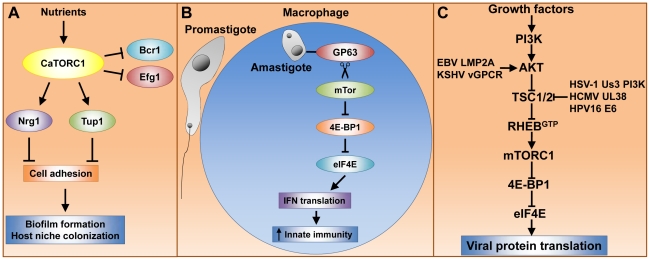Figure 1. Tor signaling governs key processes that dramatically impact pathogenesis of fungi, parasites, and viruses.
(A) caTor1 controls gene expression of adhesins and their upstream regulators, which elicit cell–cell adhesion, a process required for biofilm formation and host niche colonization. (B) The L. major GP63 cell surface protease promotes mTor cleavage and thereby mTORC1 inactivation. This event prevents mTORC1-dependent IFN type I translation, which dampens the host immune response and results in high parasite cell load. (C) Many human viral pathogens rely upon mTORC1 cap-dependent translation for replication. Growth factors activate mTORC1 via the phosphatidylinositol 3-kinase (PI3K), AKT, TSC1/2, Rheb signaling module (see text for details). Viruses have evolved protein factors capable of stabilizing the RhebGTP active form by either activating AKT or inactivating TSC2. RhebGTP activates mTORC1, enabling cap-dependent translation of early viral transcripts, which leads to viral replication.

